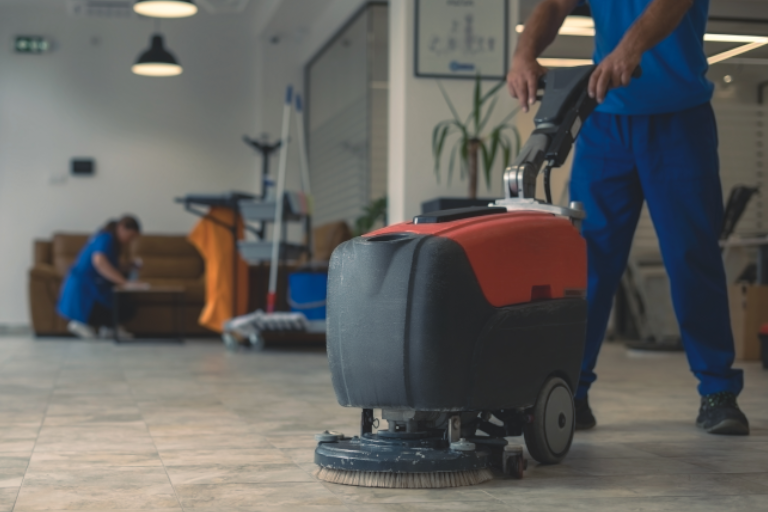Industrial cleaning machines of all types are usually battery powered. In the past, they used the same battery types as forklifts and other industrial mobile machines. These batteries were based on lead-acid chemistry, and there are many types of lead-acid batteries, including AGM and gel type.
All lead-acid batteries offer similar energy density and performance, but the cycle life may vary. Still, the cycle life is generally low, especially when compared to li-ion batteries. This is especially the case when used in deep discharge cycles.
Li-Ion becoming top choice for industrial cleaning machines.
In recent years, li-ion chemistry has emerged as the top choice for new industrial batteries. This is due to its many advantages: energy density is up to five-times higher in li-ion batteries (50-100 Wh/kg in lead acid vs up to 260 Wh/kg in NCA/NMC cells) and cycle life is also around four-times higher (less than 500 for lead-acid vs over 2,000 for LFP li-ion).
What’s more, lead-acid batteries have a lower energy density than li-ion batteries, meaning they’re usually larger and heavier – something that makes them unsuitable for use in industrial cleaning machines.
Li-ion batteries can last longer and be much lighter, meaning that machines can run for longer and that there’s no need to waste time changing batteries. When a battery change is required, it’s much simpler than changing a lead-acid battery.
It’s also the case that the longer service time ensures a longer time between services and slower capacity degradation over time, providing acceptable output over a prolonged period.
When all is considered, li-ion batteries allow industrial cleaning appliances to offer higher performance and lower running costs than lead-acid batteries.
Choosing the correct Li-Ion battery.
It must be remembered that different types of li-ion batteries have different energy densities, maximum powers, cycle lives, and more. This is why it’s important to work alongside an experienced battery manufacturer.
At Johnson Matthey Battery Systems, we have experience with a vast range of cell types from a wide range of producers. We test cells internally and/or in external laboratories to confirm their performance and ensure we recommend the best cell for your application, with the best possible battery life, as well as the proper power level and highest safety. We can also gather real life current consumption data from your machine to ensure the power it needs is provided by the battery.
